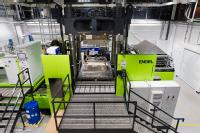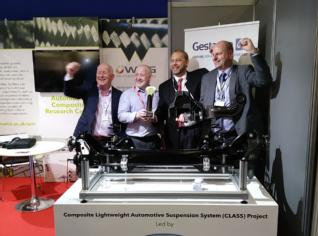WMG News - Latest news from WMG
WMG part of a £37m project to develop lightweight vehicles
A new research project, Tucana, will focus on lighweighting technology, delivering stiffer and lighter vehicle structures with the help of experts from WMG, at the University of Warwick.
of Warwick.
The research will develop world-leading cost effective, scalable carbon fibre composite solutions, with the view to boosting the performance of electric vehicles. The CO2 benefit of the project between 2023-2032, will be 4.5 million tonnes.
WMG will receive £4m, of the £18.7m government funding through the Advanced Propulsion Centre (APC), to drive the development of innovative lightweight vehicle and powertrain structures, building on the UK’s leading-edge capability in this area.
Project Tucana will allow the true environmental credentials of electric vehicles to be realised by enabling wider adoption. Tucana will deliver this step-change by addressing structural performance at a design, material and volume manufacturing-level which is currently unmet across the industry.
Award-winning WMG research makes Ford cars lighter and more efficient
Ford cars could be more fuel efficient and environmentally friendly, thanks to a new lightweight rear suspension component, designed by the award-winning Innovate UK project Composite Lightweight Automotive Suspension System (CLASS), involving WMG at the University of Warwick.
Led by Ford Motor Company, in partnership with WMG, Gestamp Chassis and GRM, the CLASS project consortium developed a new tieblade-knuckle for a Ford Class C vehicle, a key element for the car’s rear suspension.
An optimised design and manufacturing process developed by WMG enabled the researchers to replace the car’s current multiple-piece fabricated steel component with a single moulding - making a weight saving in excess of 4.5kg per vehicle, a 35% saving on the current part.
This will result in CO2 savings over the lifetime of the vehicle, and the technology is appropriate for much wider vehicle chassis and body applications.
In March 2018, the CLASS project won a JEC Innovation Award, in the Automotive Innovation category.
Researchers at WMG carried out materials selection by moulding test plaques and measuring material performance characteristics. This was fed into the design of the part, carried out by Gestamp, before optimisation of the design, carried out by GRM.

